Service Dog Training
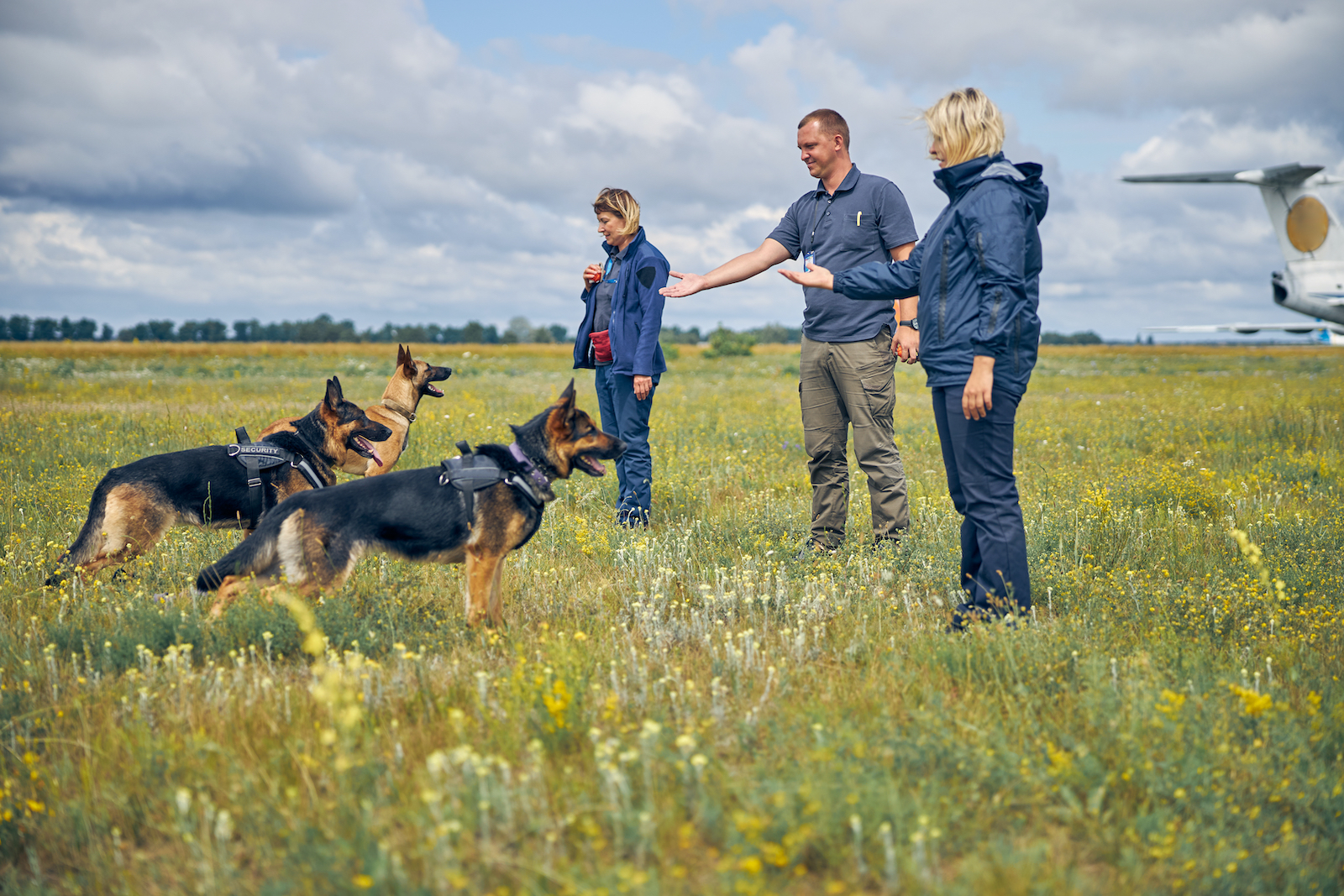
Our Service Dog Training Could Help:
- Veterans or civilians with PTSD, anxiety, or depression
- Children or adults with autism
- Individuals with epilepsy
- Advanced medical training (participating locations)
Expert Service Dog
Trainers
The Americans with Disabilities Act (ADA) defines a service dog as “a dog that is individually trained to do work or perform tasks for a person with a disability.” Disabilities include mental or physical impairments that affect an individual’s ability to perform one or more major life activities (walking, seeing, etc.).
Because service dogs play such a key role in the life of individuals with disabilities, they are protected by law. Places of residence, employment, and commercial facilities cannot discriminate against disabled individuals who rely on service animals.
Read More
If you are wondering how to get a service dog, you can either purchase a fully trained dog or get a service puppy and go through the training process together.
At Lasting Dog Training, we ensure your dog is trained to meet the specific needs of your disability. Our service dog training is personalized to support your unique challenges and empower both dog and handler for long-term success.
Unlock Exclusive Dog
Training Insights
Sign up with your email to receive exclusive tips, special offers, and expert dog training advice.
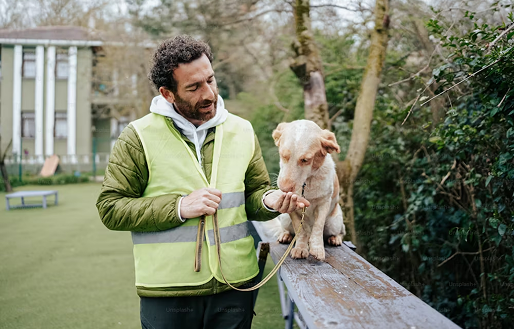
Get In Touch
Our Approach to Service Dog
Training
- At Lasting Dog Training, we believe that successful dog training requires dedication, patience, and balance. That’s why we are committed to using positive reinforcement techniques in all of our training programs.
Read More
- Through balanced training, our team helps owners build trust with their dogs. This approach is especially important for service dog training because strong relationships and communication are essential for dogs to reliably assist their handler.
- By focusing on encouragement rather than punishment, we create confident, well-behaved dogs that are eager to perform their best and impress their owners.
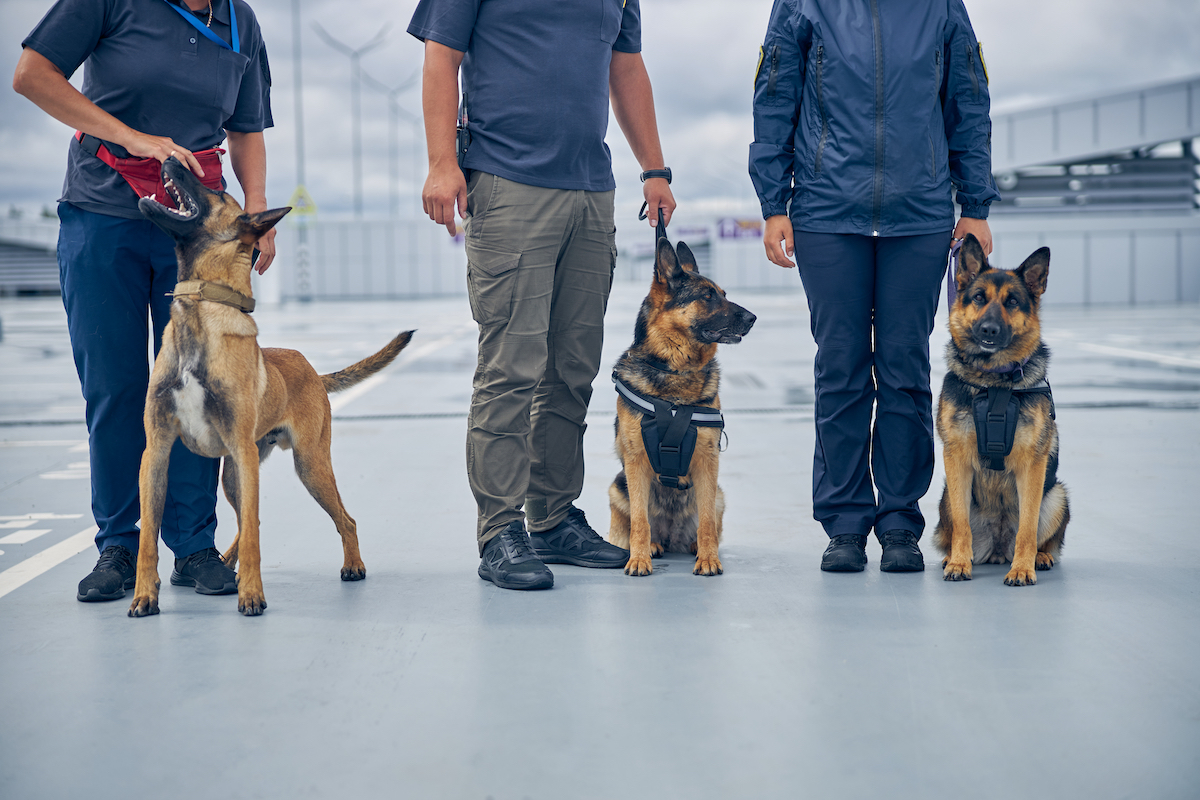
Hear From Our
Customers

Sarah M., Los Angeles
Absolutely incredible training! My dog went from anxious and reactive to calm and obedient. The trainers are patient, knowledgeable, and truly care about your pet’s success

James R., Beverly Hills
I tried multiple trainers before, but nothing compares to this program. My dog walks perfectly on a leash now and responds to all commands. Life-changing!

Sarah M., Los Angeles
Best decision I made for my pup! The personalized approach made all the difference, and now my dog listens like a pro. Highly recommend
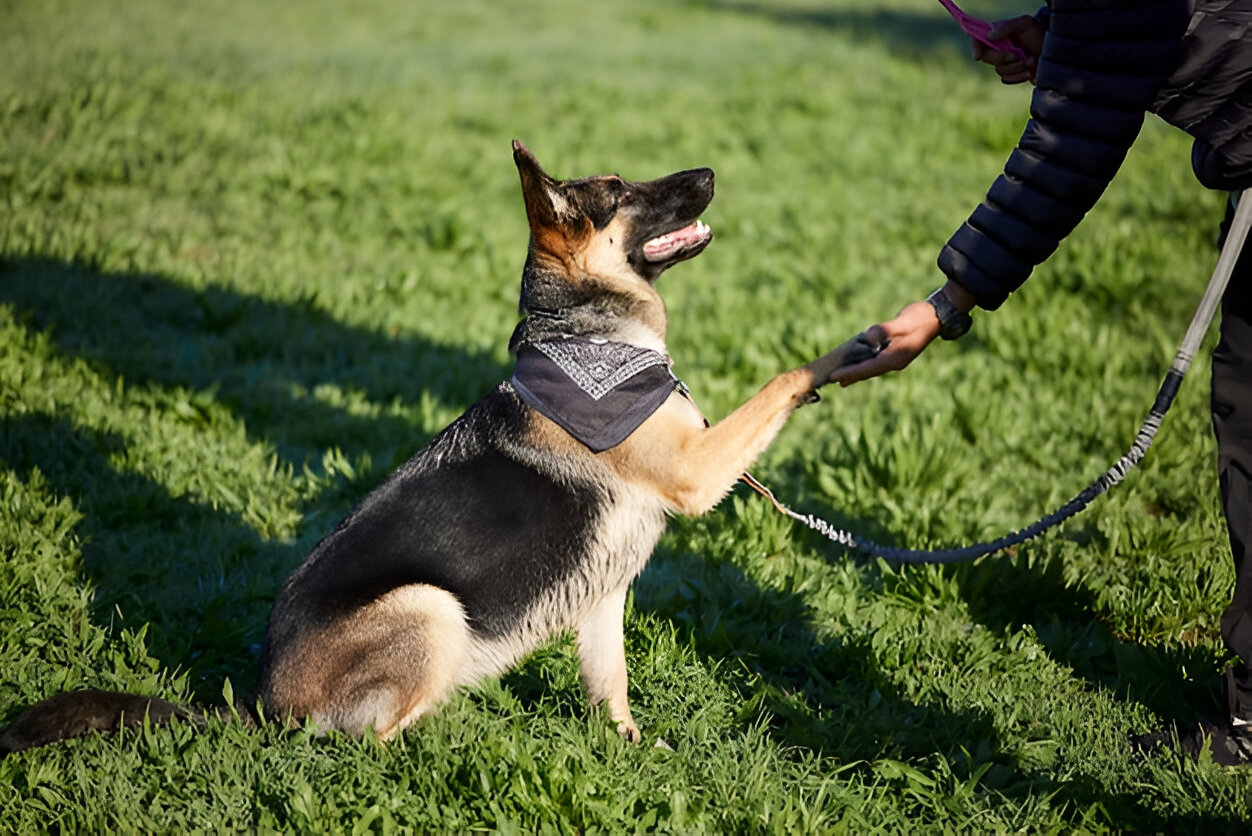
Is a Service Dog the Same as
A Therapy Dog?
Many types of working dogs increase the quality of life for their handlers. The three main categories of working dogs are service animal, therapy animal, and emotional support animal. Each category provides different types of support and is granted different levels of protection under the law.
Read More
Service Animal
As mentioned above, service animals assist individuals with disabilities. Depending on the person’s needs, the service animal is trained to perform specific tasks. For example, guide dogs help blind individuals safely navigate their surroundings, while seizure response dogs assist when a handler is experiencing a seizure.
Service animals are highly trained and specialized, receiving the most legal protection compared to therapy or emotional support animals.
Note: While dogs are the most common service animals, miniature horses are also trained to assist individuals with disabilities.
Therapy Animal
- Therapy dogs provide emotional comfort and mental health support to individuals in settings like hospitals, nursing homes, schools, hospice care, and more. These dogs must have a calm, friendly temperament and feel comfortable being handled by unfamiliar people.
- Unlike service animals, therapy dogs aren’t trained to perform specific tasks. However, they must be obedient, well-mannered, and certified to work in public therapy settings. While they are sometimes allowed in areas where pets aren’t normally permitted, therapy animals have fewer legal protections than service animals.
Emotional Support Animal
Service Dogs for Anxiety,
PTSD & Autism
- Service dogs can make life-changing differences for individuals facing mental health challenges or developmental disorders. These specially trained dogs are capable of performing specific tasks that promote safety, emotional regulation, and independence.
Read More
Support for Anxiety & PTSD
- Provide deep-pressure therapy to reduce anxiety
- Offer tactile stimulation to ground the handler
- Interrupt harmful behaviors or panic attacks
- Create physical space in public by blocking others
- Enter and check rooms before the handler to reduce fear
Support for Children with Autism
- Tracking – If a child wanders off, the dog is trained to track and locate them quickly.
- Tethering – The child is gently tethered to the dog, which helps prevent wandering in public spaces.
- Behavior Interruption – The dog can recognize repetitive behaviors or signs of a meltdown and gently redirect the child’s focus through a nudge, paw, or other physical cue.
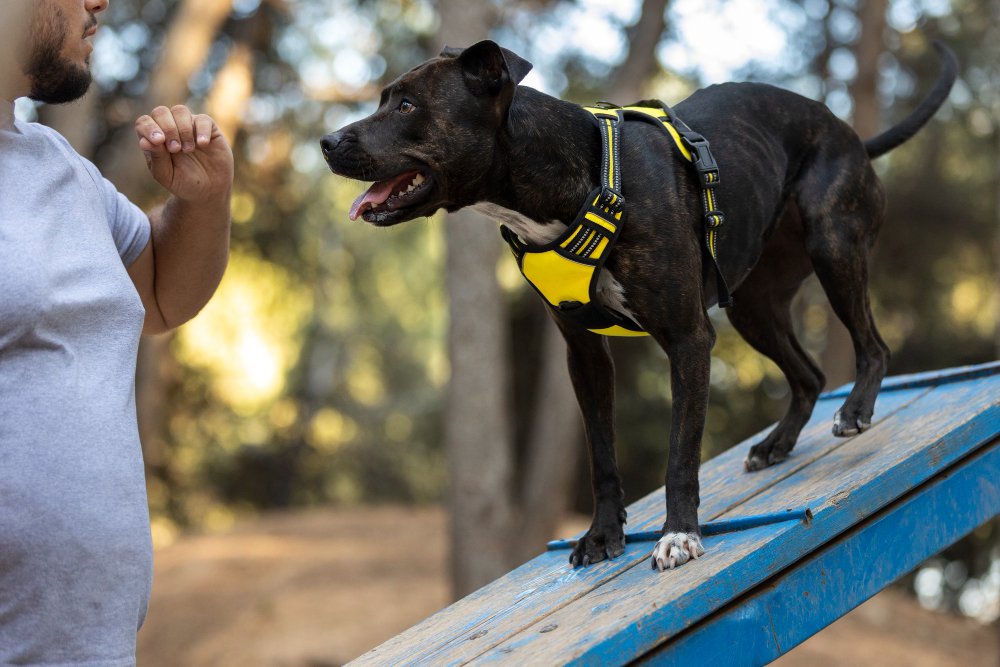
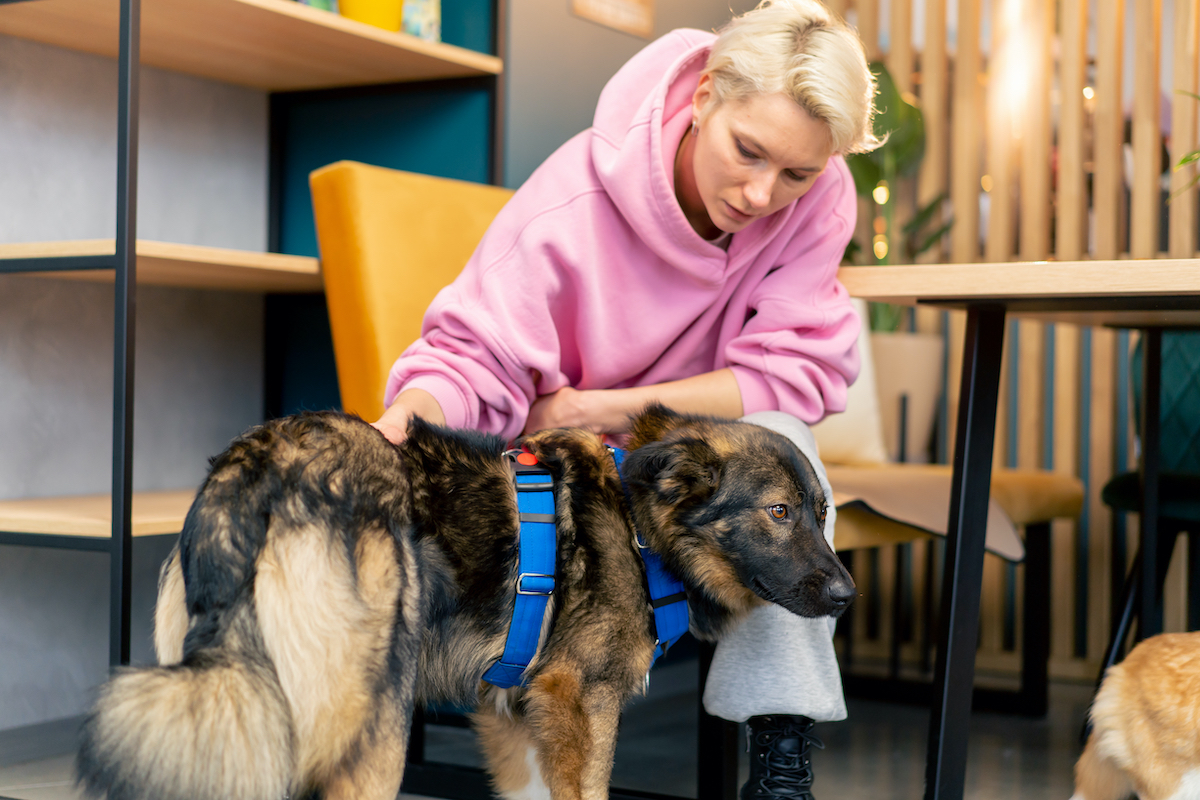
Why Choose Lasting Dog
Training
At Lasting Dog Training, we’re dedicated to transforming lives through expert service dog training. Our balanced, positive methods create highly skilled, dependable service dogs that are both obedient and loyal to their handlers.
Read More
From mobility support and physical assistance to emotional well-being and more, we provide personalized, high-quality training that makes a lasting impact.
Choose Lasting Dog Training and experience the difference that elite training and compassionate care can make.
Educate, Empower, Elevate, Elite
Victory Begins With Elite Education
What Can Service
Dogs Do?
At Lasting Dog Training, we believe in the powerful bond between service dogs and their handlers. Service dogs play a vital role in supporting individuals with various disabilities and conditions—offering not just assistance, but also independence and companionship. These specially trained dogs are capable of performing specific tasks tailored to their handler’s unique needs. Discover the breeds best suited for service work, who can benefit from a service dog, and the essential training that empowers these amazing dogs to change lives.
